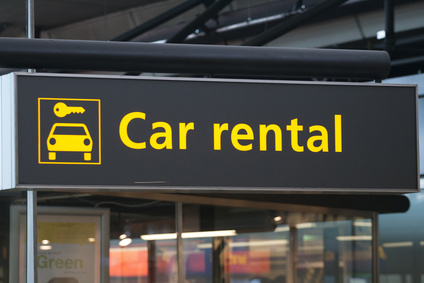The U.S. Court of Appeals for the Fourth Circuit recently reversed a trial court’s contrary ruling in a putative class action relating to a data breach and remanded the case back to state court for lack of Article III standing.
Posts published in “FACTA”
The U.S. Court of Appeals for the Sixth Circuit recently affirmed dismissal of a consumer’s claims that a retail food store violated the federal Fair and Accurate Credit Transactions Act of 2003’s “truncation requirement” by printing more digits of the consumer’s credit card than permissible by statute.
The U.S. Court of Appeals for the District of Columbia Circuit held that where a company provided a consumer with a receipt that displayed her entire 16-digit credit card number and credit card expiration date in violation of the federal Fair and Accurate Credit Transactions Act of 2003 (FACTA), the consumer alleged a concrete injury in fact sufficient for standing under Spokeo, notwithstanding the fact that the consumer noticed the violation immediately and kept the receipt in a safe location. Accordingly, the D.C. Circuit reversed the judgment of the trial court granting the defendant company’s motion to dismiss, and remanded…
The U.S. Court of Appeals for the Eleventh Circuit sua sponte issued a new opinion to vacate and replace its prior opinion affirming approval of a class action settlement against a retailer for alleged violation of the Fair and Accurate Credit Transactions Act for printing more digits of his credit card number on a receipt than permitted under the act. Departing from contrary opinions by other federal appellate courts, the Eleventh Circuit’s new opinion offers an updated analysis of the plaintiff-appellee consumer’s standing to bring the action under Spokeo, holding that the risk of identity theft the consumer suffered was sufficiently…
The U.S. Court of Appeals for the Eleventh Circuit recently affirmed a class settlement where the defendant allegedly violated the federal Fair and Accurate Credit Transactions Act (FACTA) by printing point-of-sale credit card receipts that included more than the last five digits of the card number. In so ruling, and over the objections of two class members, the Eleventh Circuit held that : Consistent with similar prior rulings from other federal appellate courts, the named plaintiff had Spokeo standing to pursue the claims, because the FACTA claims were similar to the common law tort of breach of confidence; and Class…
The U.S. Court of Appeals for the Seventh Circuit recently held that a putative class action alleging violations of the federal Fair and Accurate Credit Transactions Act (FACTA) could not be removed to federal court because the plaintiffs lacked Article III standing, which deprived the federal trial court of subject matter jurisdiction. Accordingly, the Seventh Circuit remanded the case to the federal trial court with instructions to return the case to state court. A copy of the opinion in Kathryn Collier v. SP Plus Corporation is available at: Link to Opinion. The lead plaintiffs filed a class action complaint in Illinois…
The U.S. Court of Appeals for the Ninth Circuit recently affirmed the dismissal of a consumer’s putative class action alleging willful violations of the federal Fair Credit Reporting Act (FCRA) for lack of standing under Spokeo, Inc. v. Robins, 136 S. Ct. 1540 (2016). In so ruling, the Court held that merely printing a credit card receipt without redacting the card’s full expiration date did not allege the concrete injury required, where no second receipt existed, the consumer did not lose the receipt, nobody stole the receipt, and nobody stole the consumer’s identity. A copy of the opinion in Bassett…
The U.S. District Court for the District of New Jersey recently concluded that a putative class representative did not have standing under Spokeo to sue for a technical violation of the federal Fair and Accurate Credit Transactions Act (FACTA). The Court identified the issue as whether the consumer alleges a sufficiently “concrete” harm to confer standing, based on a technical violation of FACTA, 15 U.S.C. § 1681, et seq., when a retail store printed the first six numbers and last four numbers of his credit card on his transaction receipts. Relying on the Supreme Court’s ruling in Spokeo Inc. v.…
The U.S. Court of Appeals for the Second Circuit recently joined the Seventh Circuit in holding that printing a credit card expiration date on an otherwise properly redacted receipt does not constitute an injury in fact sufficient to establish Article III standing to bring a claim alleging a bare procedural violation of the federal Fair and Accurate Credit Transactions Act of 2003 (FACTA). Accordingly, the Second Circuit affirmed the ruling of the trial court dismissing the plaintiff’s amended complaint. A copy of the opinion in Crupar-Weinmann v. Paris Baguette America, Inc. is available at: Link to Opinion. The plaintiff brought…
The U.S. Court of Appeals for the Eighth Circuit recently held that plaintiff’s class counsel is allowed to submit proposals to the court regarding the method for calculation of reasonable attorney’s fees, but the court has the discretion to accept or reject such proposals and is not required to accept the plaintiff’s proposed method. In so ruling, the Court also held that the Class Action Fairness Act’s “coupon settlement” provisions at 28 U.S.C. § 1712 permit a district court to use a combination of percentage-of-coupons-used and lodestar methods to calculate reasonable attorney’s fees, but CAFA does not require that any portion…









